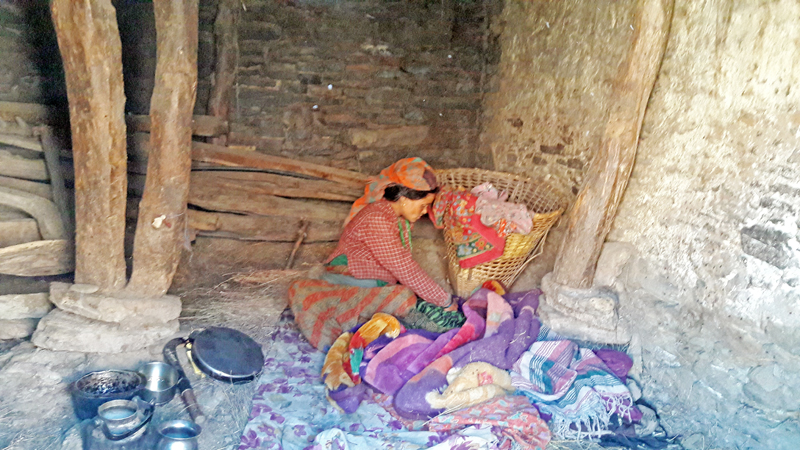
Bajura, December 5, 2016:Â Nandasara Sarki of Badhu, Bajura was put in a cowshed when she complained of labour pains a few days ago. Like many women in her village, she gave birth to her baby in the tiny, dingy, windowless shed next to an ox.
Sarki will now spend the next month in the shed with her baby, where she will not be even touched by other people because villagers believe that a new mother is ‘impure’ and keeping her in the house will invite the wrath of gods.
This is Sarki’s fourth delivery in the cowshed. Two of her children have died in the shed, where newborn infants cannot receive the care, warmth, and hygiene they require.
All women of Badhu give birth in a shed away from their homes because of superstition. “Both new mothers and their babies suffer from various diseases and health complications because of this practice,†said health volunteer Chandra Kala Budha.
This practice is prevalent in many remote districts including in Humla, Mugu, Jumla, Kalikot, and Dolpa of Karnali zone.
Assistant Health Worker Dhan Bahadur Phadera of Rugin Health Post said that more than 80 per cent women in the aforementioned five districts give birth to babies in sheds, resulting in high infant and maternal mortality rates in the districts.
“Very few women give birth at a health facility in these districts; but even they stay in a shed after delivery for a month,†said Kamala Rokaya, assistant nursing mid-wife at Seri Health Post.
Incentives provided by the government to women to encourage births in health facilities have not managed to increase hospital births effectively.
Though the Nepal government, Sahara, UNICEF, Phase, and other organisations have invested millions of rupees to combat this supertition-based practice, no significant change has been felt in the area.
Rights activist Dharma Raj Padhya said that rural women were bearing the brunt of conservative mindset, lack of health facilities, and lack of health workers in their proximity.






